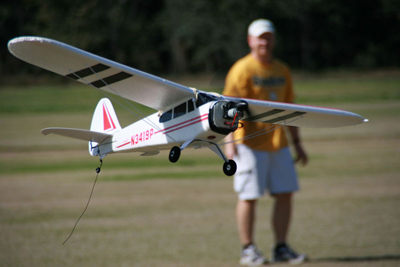What started as a neighbourhood noise complaint has become a B.C. Supreme Court decision that could have far-reaching implications for the fledgling drone industry. Justice Frank Cole effectively ruled in late October that remote control aircraft be banned from use on agricultural land in the province. The immediate impact is on the Kelowna Radio Control Flyers, an RC club based in Kelowna that operates from a grass strip in the neighouring community of Lake Country but this might be the first legal decision that effectively imposes municipal jurisdiction on drone operations.
The club moved to the Lake Country location a few years ago and was careful to ensure its activities were legal. The three-acre property in question is in the province’s Agricultural Land Reserve (ALR), a provincially administered program that severely limits the development of arable land for anything but agriculture. ALR regulations do allow helipads and grass runways and Lake Country’s municipal bylaws included that provision. Lake Country officials formally endorsed the RC club’s move to the site.
Shortly after the club began operations, neighbours, including chicken farmers and equestrian operations, started complaining about the noise. Lake Country reversed its original approval of the club’s landing strip and asked the membership to move. The club refused and the matter ended up in court.
In his ruling, Cole said the inclusion of landing strips and helipads in the land use regulations had to be interpreted as being for the benefit of agricultural operations and he could not extend that to hobbyists flying for recreation. However, he did not address the use of remotely controlled aircraft engaged in support of agriculture. Use of unmanned aerial systems (UAS) for surveying, spraying and fertilization of farm crops is a new but growing industry.
Meanwhile, the Kelowna club is looking for a new home where it will be able to operate legally. Most locations away from developed areas that are suitable for a small airstrip are in the agricultural reserve, said club president Todd Davis. “When we moved here everything fit within the zoning bylaws and Lake Country gave us full approval,” said Davis. “But then the neighbor started to complain and things changed. We have members from age five up to 90. Some of these guys it’s their only reason for getting up in the day. It’s the only thing they do. For a lot of our members it’s heartbreaking.

